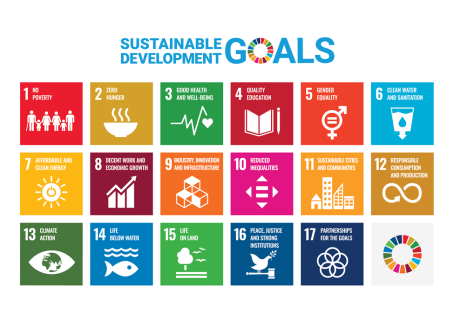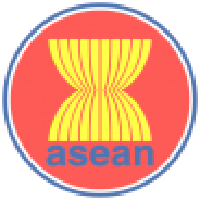Advocacy
Sustainable Development Goals (SDGs)

Channel Hub:
THE 2030 Agenda for Sustainable Development is a cause for celebration for local and regional governments the world over. As the road to global sustainability runs through the world’s cities and towns, metropolitan areas and local governments will be the center of decision-making and therefore need to be empowered. In fact, around 60% of the 169 targets under the SDGs can only be achieved through the involvement of local stakeholders.
Rooted from the idea that all SDGs are local –from ending poverty to revitalizing the global partnership for sustainable development, UCLG Network has a big task to localize these goals, ensuring that they are understood and taken into action by local and regional institutions. Recognizing this, UCLG World came forward with the Learning Agenda that offers a space to test new ideas and methodologies and develop learning spheres and communities of practice to address the specific interests of our members.
Role of UCLG ASPAC
UCLG ASPAC has joined a global task force to advocate the role of local governments in the Post 2015 Sustainable Development Goals (SDGs) agenda. As part of the UCLG Network, UCLG ASPAC has incorporated the SDGs in its Strategic Plans, being determined to support all local and regional governments in acquiring the necessary capacities and resources to implement the SDGs effectively. Together with UCLG World, the ILO and the Federation of Sri Lankan Local Government Authorities (FSLGA), UCLG ASPAC organized a Workshop in Negombo, Sri Lanka, from 9 to 12 December 2015 to begin addressing the SDG’s at a local level, with a specific focus on SDG 8 around Local Economic Development (LED). The meeting gathered South West Asian members and partners and experts from the Netherlands, the Philippines, Spain and South Africa.
Furthermore in March 2016, UCLG ASPAC and European Commission’s Policy Forum Development organized a Focus Group Discussion (FGD) on the commitment of SDGs implementation in Indonesia, bringing together key persons and representatives from Indonesia’s local authorities and CSOs. The FGD was a kick-start of a study to identify channels to improve the participation of local authorities and CSOs in the implementation of the SDGs. The study is part of a global study, in which four other countries are participating, namely, Peru, Botswana, Lebanon and the Netherlands.
LOCALISE SDGs (Indonesia)
Since 2018, United Cities Local Governments Asia Pacific (UCLG ASPAC) in collaboration with the Association of Indonesian Municipalities (APEKSI) and involving other associations has been supporting the acceleration of localising of SDGs through the LOCALISE SDGs (Leadership, Ownership, and Capacities for Agenda 2030 Local Implementation and Stakeholders Empowerment) programme. Funded by the European Union, the programme has supported 30 Local Authorities (LAs) and its Association of Local Authorities (ALAs) the programme has supported 30 Local Authorities (LAs) and its Associations of Local Authorities (ALAs) through advocacy, capacity building, and knowledge management of SDGs.
As the funding for the implementation of the LOCALISE SDGs programme was ending in June 2021, LOCALISE SDGs concluded its project by organising an online Final Conference on Dissemination of Learning and Programme Outcomes of LOCALISE SDGs “Encouraging Acceleration Recovery from Pandemic through Commitment and Implementation of Sustainable Development Goals Attainment”. The event was a success and attended by 300 participants via zoom and more via youtube. In total, there were more than 70 representatives of central, local government, universities, and other institutions in Indonesia, also Asia-Pacific.
During pandemic, LOCALISE SDGs provided technical assistance for tourism recovery to five selected local governments: East Kalimantan Province, South Sulawesi Province, Gorontalo City, Padang City, and Sawahlunto City from December 2020 to June 2021. LOCALISE SDGs also produce others tangible products to support LAs, ALAs in the pandemic recovery, including 5 (five) policy research on COVID-19 and SDGs; 5 (five) videos for LGAs; Pocket Books for LAs and LGAs; compilation of best practices on COVID-19 and SDGs. The training modules on LOCALISE SDGs and international cooperation; and website (https://localisesdgs-indonesia.org), that have also been developed, showed the long commitment of LOCALISE SDGs in supporting the capacity building and knowledge sharing for LAs, also ALAs regarding SDGs issues, though the program has been completed.
The Final Conference of LOCALISE SDGs concluded with the signing of a Memorandum of Understanding (MoU) between UCLG ASPAC and three SDGs Centres from the leading universities in Indonesia: Universitas Indonesia, Institut Teknologi Bandung and Universitas Diponegoro. Secretary General of UCLG ASPAC, Dr Bernadia Irawati Tjandradewi, said, “The signing of this MoU is a form of UCLG ASPAC’s commitment to continue its support to the Government of Indonesia and local authorities, in collaboration with the SDGs Centres of each university and the Associations of Local Authorities to conduct campaigns, policy advocacy, research and publications on SDGs post LOCALISE SDGs programme. The initiation of this partnership is very important, considering that the success of achieving the SDGs in 2030 requires a joint effort from all parties,” she added.
This is also shown a commitment that UCLG ASPAC is continuing to assist local governments in achieving SDGs through their own local initiatives.
LOCALISE SDGs Indonesia: https://localisesdgs-indonesia.org
For the final LOCALISE SDGs conference’s slides materials presented by speaker, can be accessed publicly through LOCALISE SDGs website https://localisesdgs-indonesia.org/pengetahuan-tpb), and research publication can also be accessed through https://localisesdgs-indonesia.org/newsletter
LEAD for SDGs Localisation Programme
The Local Empowerment, Advocacy and Development (LEAD) for Sustainable Development Goals (SDGs) Localisation in Pakistan is a 4-year (2019-2023) Programme co-funded by the European Union and implemented by the United Cities and Local Governments Asia Pacific (UCLG ASPAC) in partnership with the Association for Development of Local Governance in Pakistan and the Local Councils Associations of Balochistan and Sindh. The Programme objective is to contribute to the localisation and achievement of SDGs in Pakistan through fostering an enabling environment for mainstreaming SDGs in local development processes in targeted districts of Sindh and Balochistan Provinces. The programme is expected to achieve the following results through different interventions:
Effective and Responsive Local Governments in Support of SDGs
- Awareness Raising of Key Stakeholders about SDGs
- Advocacy for Empowered and Effective Local Governments
- Building Multi-stakeholders’ Alliances for Advocacy, Public-Private Partnership and Monitoring of Progress on SDGs
- Policy Dialogue for Mainstreaming and Localisation of SDGs
- Enabling Local Governments to Contribute to the National Voluntary Review on SDGs
Enhanced Institutional Capacity of Local Governments for SDGs Implementation
- Training and Capacity Building of Provincial and Local Government Functionaries
- Development of SDGs Aligned District and Local Plans by Local Governments in Collaboration with the Communities
- Promotion of Learning, Best Practices and Collaboration across Districts and Provinces on Attainment of SDGs
Improved Knowledge and Information around SDGs
- Development of Digital Knowledge and Information Hub on SDGs
- Publication of IEC and other Material on SDGs for Wider Dissemination
- Conducting Empirical Research for Informed Planning and Development
Innovative Approaches Adopted for SDGs Localisation in 4 Districts
- Prioritisation of SDGs related Issues in 4 Pilot Districts
- Development of Financing Strategy for Implementation of Selected Priorities including Public-Private Partnership
- Implementation of Priority Issues
- Development of Monitoring Framework to Track/Measure Progress on SDGs in Pilot Districts











